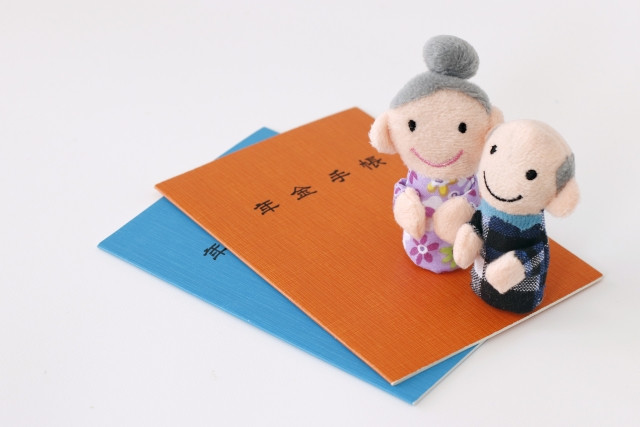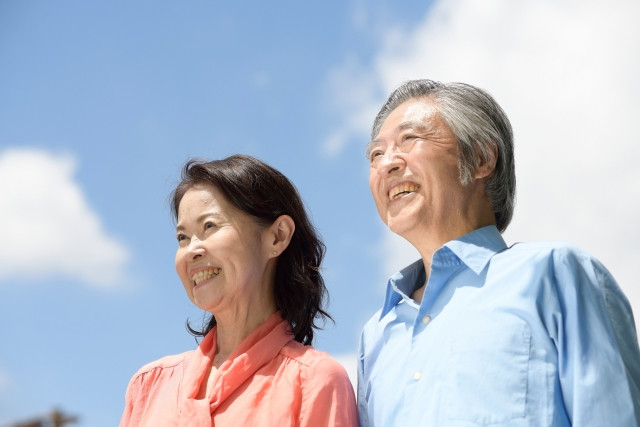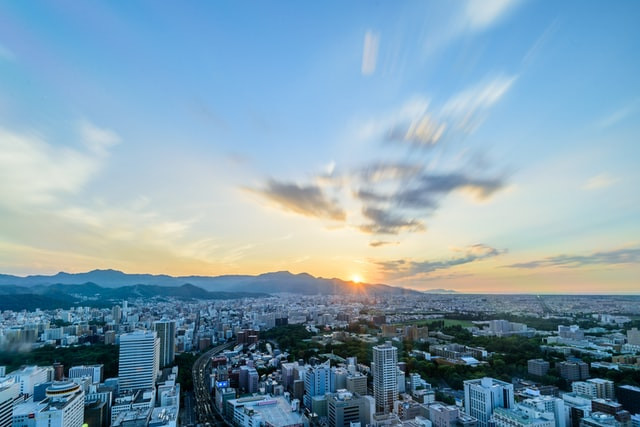After years of work, we all want to have a good rest in our sunset years, and many choose Japan. It has countless sceneries to see, and numerous activities to do, as even the retired population in Japan is super active. When preparing to settle down, here is crucial information you must know.
Table of Contents
Why Japan?
For foreigners, choosing Japan as a retirement place can be one of the most fulfilling and rewarding options. Firstly, if one has worked or lived in Japan for years prior to retirement, sticking around for the rest of one’s life can provide quite a comfortable and enriching time for enjoying the sunset years as Japan has one of the highest standards of living and also one of the highest expected longevity in the world. This is due to the healthful diet, excellent health care, restful countryside environment and other material advantages.
Secondly, the Japanese possess a culturally-rich history and an equally culture-based approach to economic progress founded on a technology-driven approach. That means, the purpose and application of science and research are geared toward preserving the natural ecology and the cultural fabric of the nation. In simpler words, people that retire in Japan can enjoy an endless endless supply of unique and spellbinding places one can visit and enjoy during a long vacation or a day-tour. Top of the line products are also within an arm's reach, along with medical facilities and inventions that grow particularly useful towards the aged.
It goes without saying that if you are married to a Japanese citizen and have created a life together in Japan, retiring in Japan already offers many advantages beyond what we have mentioned above. It seems to make sense to stay where your heart and hearth have found their rightful destination right where you have already established a meaningful life.
Writer's Pick
What to do if you retire in Japan

Deciding to retire in Japan initially requires knowing what one will be up against and not just what one hopes to enjoy or benefit from living there for good. Almost everyone knows how high the cost of living in Japan is, which is expected of a country that is recognized internationally as a highly-industrialized and technologically-modern country. Now if you have what it takes to live with that in mind, one now must consider the ways one can acquire a visa suitable to retiring in Japan.
How to secure a visa
As Japan does not issue retirement visas for those deciding to try to do so on a whim, one may have to wait for a long time or find other means of acquiring a proper visa. There are several ways one can retire in Japan. One is to be married to a Japanese citizen (a spouse of permanent resident), or if one’s parents or biological children are Japanese citizens. Another is having a long-term resident visa for persons with Japanese ancestry or Indochinese refugee settlers. Foreigners with private employment with diplomats can apply for a long-term stay in Japan too! And one of the best options for those that don’t apply for the above is to work in Japan and eventually acquire permanent resident status.
The usual requirements for a work visa are the following:
-
Passport
-
Recent photos
-
Visa Application Form
-
Certificate of Eligibility
With such a working visa or long-term visa, one can be given the privilege of reentry (a Re-entry Permit or a Special Re-entry Permit) which is issued by the Ministry of Justice or any Regional Immigration Bureau before departing from Japan. This long-term visa is the best option for most foreigners who have the patience to wait for up to 6 or even 10 years in order to finally acquire permanent residency.
And if you work in Japan, you pay into the National Pension, meaning you can receive pension payments when you retire, more benefits of the years of your hard work.
※ Ministry of Foreign Affairs of Japan, "Persons who leave Japan and wish to re-enter Japan (for work or long-term stay only)" ※ Ministry of Foreign Affairs of Japan, "Work or Long-term stay"
Healthcare won’t be an issue

Healthcare in Japan offers residents state-of-the-art medical attention from highly-qualified health practitioners in advance, well-equipped hospitals. One can either obtain health insurance in Japan through the Employees’ Health Insurance for employees in private companies or through the National Health Insurance for public workers. Any working-visa holder can obtain health insurance for which one must contribute a monthly premium as one’s contribution of 30% of the coverage, the rest being shouldered by the public employer.
※ Japan External Trade Organization, "Section 4. Human Resource Management 4.9 Japan's social security system"
Places to call home
Housing is a major issue in Japan because of the high cost of real properties. Homes in major cities in Japan are not as spacious, primarily because of the high cost of building construction and the number of people. But the takeaway on living in the cities is that you are closer to everything you need, for example, if you like to stroll in the malls or have a good nightlife with friends. The better option for most retirees falls on choosing to live in the countryside and not in the cities where space is limited, and the standard of living is much higher than the rest of the country. Nevertheless, living in the countryside might just be the best option for retirees seeking peace and quiet in their old age.
For reference, where are the popular places to retire in Japan? Here are a few worth mentioning:
Okinawa, the Hawaii of Japan, is the place if one wants a serene retirement for their sunset years. The island climate is certainly accommodating, fruits and vegetables are freshly produced, and the flower festivals are enchanting. Okinawa is famous for its natural beauty, offering a range of beaches and wide sets of ocean adventure activities like scuba diving. Overall, Okinawa has a fairly large number of retired foreigners, and a gradually increasing expat population, a testament of how good it is as a retirement destination.
Tokyo, the capital of Japan, hosts the world’s highest population within a metropolitan area, with over 37 million residents, many of whom are considered well-educated and highly-motivated in their jobs and in their dedication to the nation’s common goals and ongoing innovative ways of achieving efficiency and productivity. If you are one who relishes the fast life and the excitement of the urban setting,Tokyo has its good share of entertainment, from tiny hidden bars and galleries to giant venues for sports, music and fun.
※ United Nations, "The World’s Cities in 2018," p. 17

If you don't mind the cold, Sapporo is another superb destination, but if the city life is for you then Japan’s second largest city, Yokohama is certainly a fit. Miyazaki, perhaps lesser known but very popular for retiring, is also a nice place blessed with a comfortable climate and scattered with historic destinations. And of course, the list would not be complete without mentioning Kyoto, the religious and cultural capital of Japan, the ultimate spiritual experience.
Tips for retiring in Japan
Japan can provide foreigners who plan to work and live and eventually retire in Japan many opportunities to start their journey toward that goal by choosing the kind of job that is most suitable for one’s qualifications, lifestyle, standard of living and retirement expectations.
Neighborhood associations are also recommended to be in touch with for newcomers to fully understand the ins and outs of living in various areas of Japan. From garbage disposal, to basic community etiquette, the already established rules are for the benefit of all who live in the area. Depending on the location on where you wish to retire, most municipalities have their own community organizations (chonai kai) and residents’ association (jichi kai) to assist you. As long as you are part of the neighborhood, you can participate in community activities such as organizing festivals and other general activities.
Another concern of foreigners who retire in Japan may be that they may encounter difficulties getting across people in times of emergency. To prepare for this, there are various helpful guidelines, where a list of counseling and emergency contacts can also be found, on page 104 coming to be noted with.
※Ministry of Justice, Guidebook on Living and Working
Summary

The young rarely plan for the rainy days and less so for the grey years far into the future. But retirement in old age eventually comes. Because Japan has the highest retirement age limit, around 68 or more, anyone who decides to retire there must also be ready for the long haul. And while most countries may have finally lost steam and the strength to sustain their development, Japan may well survive far beyond into the future because of its undying spirit of endurance and unswerving dedication to excellence. If you can appreciate that spirit and dedication, you may not be far from becoming like one of the Japanese.
































